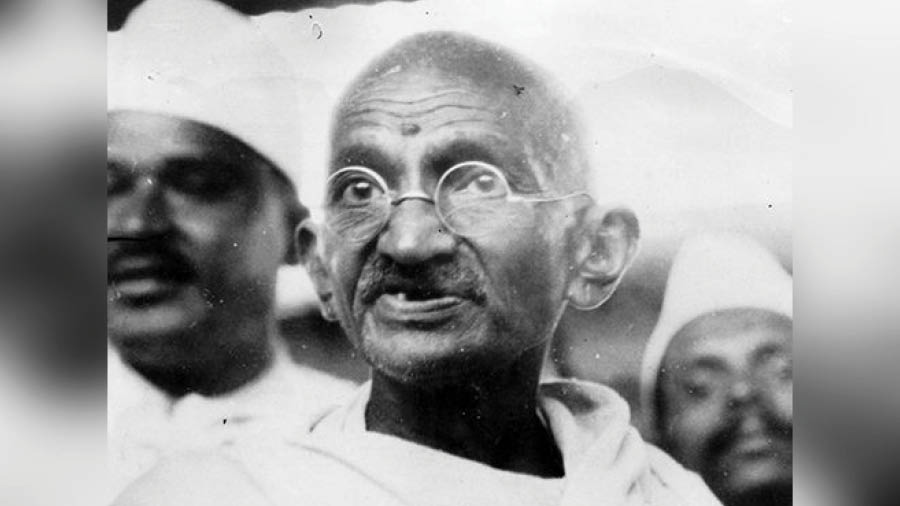M.K. Gandhi, in all probability, never heard of Marcel Proust. Proust, being an avid reader of newspapers, might just have read about the Mahatma’s campaigns in Le Figaro. In that case, he might not have shown further interest in the experiments in satyagraha.
Isn’t that along expected lines? For the two seem poles apart. Gandhi started his day (with prayers) when Proust would be ending his (after soirées). One had little patience for conventional arts; the other saw them as the only source of finding the meaning of life.
But they should have met. Romain Rolland could have introduced them. Mirabehn could have acted as the interpreter, with Mahadev Desai taking notes in his diary.
As the two settle down to a conversation, there is a possibility that the man draped in the latest Parisian fashion and the man wearing a khadi shawl would soon realise that they don’t have much to talk about. But soon, the two discover, to their great joy, that they are both disciples of John Ruskin. Proust recalls how he had once given up his novel writing project upon discovering the charm of Ruskin’s prose.
Gandhi too recalls his train journey in South Africa in 1904 when his friend, Henry Polak, thrust a copy of Unto This Last in his hands. He claims that the one book “that brought about an instantaneous and practical transformation in my life was Unto This Last. I translated it later into Gujarati, entitling it Sarvodaya (the welfare of all).”
Ah, the French man is surprised. He says he too has done his share of Ruskin translations, even if his English is no good. He spent four years translating (and also annotating, with utterly delightful asides and essays on the act of reading) Ruskin’s The Bible of Amiens and Sesame and Lilies. Proust adds that Ruskin also taught him to discover beauty not only in masterpieces in museums but also in the world itself. “There is no better way of coming to be aware of what one feels oneself than by trying to recreate in oneself what a master has felt. In this profound effort it is our thought itself that we bring out into the light, together with his.”
Gandhi concurs and says that was precisely what he learnt when he was in Yerawada jail and the night sky ignited a passion for astronomy. “Just as one who perceives the endless beauty of the sky would need no canvas for his enjoyment, so one who can read the beauty of the sky within would want little need from the sky overhead.”
Enough of idolatry, both realise. Yes, one day, he did put the Ruskin tomes aside and started writing his own, says Proust. Gandhi replies that he, too, did not wish to continue reading other books by Ruskin but started the very next day to put his innermost convictions, freshly attested by Ruskin, into practice and founded the Phoenix settlement.
A long and deep silence ensues.
Breaking the silence, Gandhi says many of us read “but never reflect on what [we] read, much less put it in practice. We should, therefore, read less, but think over what we read and put it in practice. We may reject what we discover from experience to be unsuitable, and go on with the rest. Persons who follow this method will satisfy their needs with less reading, save much time and become fit for creative and responsible work.”
Proust, eyes sparkling, looks up and rephrases it: “So long as reading is... the inciter whose magic keys open to our innermost selves the doors of abodes into which we would not have known how to penetrate, its role in our life is salutary. But...reading becomes dangerous when instead of waking us to the personal life of the spirit, it tends to substitute itself for it, when truth no longer appears to us as an ideal we can realise only through the intimate progress of our thought and the effort of our heart, but as a material thing, deposited between the leaves of books like honey readymade by others and which we have only to take the trouble of reaching for on the shelves of libraries and then savouring passively in perfect repose of body and mind.”
Ashish Mehta is a Delhi-based journalist











